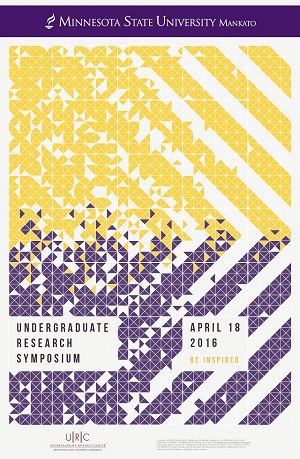Hybrid Renewable Power Systems: Analysis of Feasibility and Design
Location
CSU 255
Start Date
18-4-2016 2:10 PM
End Date
18-4-2016 3:10 PM
Student's Major
Integrated Engineering
Student's College
Science, Engineering and Technology
Mentor's Name
Mohammad Fanaei
Mentor's Department
Integrated Engineering
Mentor's College
Science, Engineering and Technology
Second Mentor's Name
Ron Ulseth
Second Mentor's Department
Integrated Engineering
Second Mentor's College
Science, Engineering and Technology
Description
Historically subject to fluctuations of the iron ore market, an innovative solution is needed to facilitate sustainable economic growth for the communities in Northeastern Minnesota. The objective of this research is to analyze the feasibility of a hybrid renewable power system that utilizes the natural resources of Iron Range communities to produce clean energy with minimal environmental impact. The proposed renewable power system integrates a pumped-storage hydropower (PSH) facility used as a battery with renewable power resources. Surplus electric energy produced using green resources (i.e., wind and solar) is used to pump water from a lower- to a higher-elevation reservoir. A network of abandoned open-pit mines that are filled with fresh water exists in the region. These “pit lakes” could provide storage for the proposed system, while minimizing the environmental impacts of large infrastructure projects. The stored energy in the PSH system will be harnessed by running water to the lower reservoir, turning a turbine to generate electricity during peak hours. The feasibility study used statistical analyses and climate data to determine the power production capabilities of solar and wind resources. These technologies have no greenhouse gas emissions, and the Iron Range has developed a skilled workforce in these fields. The broader social, economic, and political implications of implementing this project were investigated using market analysis tools. Mathematical modeling was performed to understand the potential storage of several pit lakes using GIS software. By combining renewable sources with PSH storage, a more environmentally-sound power producing grid was proposed.
Hybrid Renewable Power Systems: Analysis of Feasibility and Design
CSU 255
Historically subject to fluctuations of the iron ore market, an innovative solution is needed to facilitate sustainable economic growth for the communities in Northeastern Minnesota. The objective of this research is to analyze the feasibility of a hybrid renewable power system that utilizes the natural resources of Iron Range communities to produce clean energy with minimal environmental impact. The proposed renewable power system integrates a pumped-storage hydropower (PSH) facility used as a battery with renewable power resources. Surplus electric energy produced using green resources (i.e., wind and solar) is used to pump water from a lower- to a higher-elevation reservoir. A network of abandoned open-pit mines that are filled with fresh water exists in the region. These “pit lakes” could provide storage for the proposed system, while minimizing the environmental impacts of large infrastructure projects. The stored energy in the PSH system will be harnessed by running water to the lower reservoir, turning a turbine to generate electricity during peak hours. The feasibility study used statistical analyses and climate data to determine the power production capabilities of solar and wind resources. These technologies have no greenhouse gas emissions, and the Iron Range has developed a skilled workforce in these fields. The broader social, economic, and political implications of implementing this project were investigated using market analysis tools. Mathematical modeling was performed to understand the potential storage of several pit lakes using GIS software. By combining renewable sources with PSH storage, a more environmentally-sound power producing grid was proposed.
Recommended Citation
Rasley, Katherine. "Hybrid Renewable Power Systems: Analysis of Feasibility and Design." Undergraduate Research Symposium, Mankato, MN, April 18, 2016.
https://cornerstone.lib.mnsu.edu/urs/2016/oral-session-13/2




